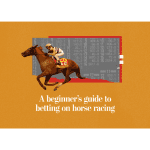What is Spread Betting?
Spread betting is a type of derivative strategy where participants can speculate on the price movements of various financial markets, such as stocks, currencies, and commodities, without actually owning the underlying asset. It allows individuals to profit from both rising and falling markets by placing a bet on whether the price of an asset will go up or down.
Unlike traditional forms of investing, where investors buy and sell assets to make a profit, spread betting involves placing a wager on the direction in which the price of an asset will move. The profit or loss is determined by how much the price moves in the predicted direction. Spread betting is popular among traders and investors looking for an alternative way to trade financial markets and capitalize on market volatility.
Understanding the Concept of Spread
Spread in spread betting refers to the difference between the buy (bid) price and the sell (ask) price of a financial instrument. It represents the cost of trading and is the main source of profit for spread betting providers. The spread essentially determines the breakeven point for a trade – the price at which the trade moves from a loss to a profit, or vice versa.
The size of the spread can vary between different assets and markets, with more liquid and popular assets usually having tighter spreads. This means that the cost of trading these assets is lower compared to less liquid or more exotic assets. Understanding how spreads work is crucial for spread bettors as it directly impacts the profitability of their trades. By keeping an eye on the spread, traders can make more informed decisions and effectively manage their risk.
Key Players in Spread Betting
Spread betting involves various key players who play significant roles in facilitating the market. Firstly, the traders are at the forefront of spread betting, engaging in buying and selling financial instruments based on their predicted price movements. These individuals carefully analyze market trends, economic indicators, and news events to make informed decisions on their trades. With experience and strategic insight, traders aim to capitalize on price fluctuations within the spread betting market.
Another key player in spread betting is the spread betting provider. These companies act as intermediaries between traders and the financial markets, offering access to a wide range of assets and markets for spread betting. Spread betting providers set the bid and ask prices for the tradable instruments, with the difference between these prices representing the spread – their profit margin. Furthermore, spread betting providers offer trading platforms, educational resources, and customer support services to assist traders in navigating the complex world of spread betting.
Factors Influencing Spread Betting
One of the primary factors that influence spread betting is market volatility. When the market is highly volatile, the spreads tend to widen as there is increased uncertainty and potential risk involved. Investors need to carefully assess market volatility before engaging in spread betting to ensure they are well-prepared for any sudden price fluctuations.
Another significant factor influencing spread betting is economic data releases. Important economic reports such as GDP growth, unemployment rates, and inflation figures can have a substantial impact on the underlying assets being bet on. Traders need to stay informed about upcoming economic events and understand how these releases may affect the markets to make well-informed spread betting decisions.
Benefits of Spread Betting
Spread betting offers the benefit of allowing traders to speculate on a wide range of financial instruments, including stocks, indices, currencies, and commodities. This diversity provides investors with the opportunity to create a diversified trading portfolio without the need to own the underlying assets.
Furthermore, one of the key advantages of spread betting is the ability to profit from both rising and falling markets. This means that traders can potentially generate profits regardless of whether the market is moving up or down, offering greater flexibility and opportunities for financial gain.















